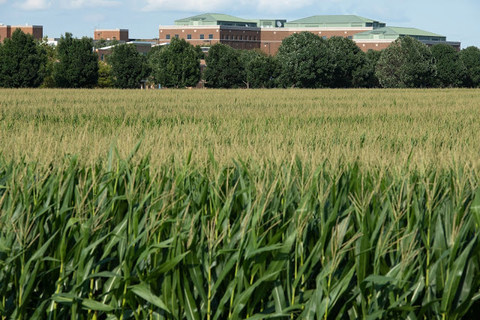
Two University of Illinois Springfield professors, in collaboration with professors at Tuskegee University in Alabama, have received a three year $500,000 United States Department of Agriculture National Institute of Food and Agriculture grant to assess the risk of pesticide use and air dispersion in urban agricultural communities.
UIS Assistant Professor of Public Health Egbe Egiebor and Associate Professor of Public Health Dorine Brand will receive about $168,000 from the overall grant awarded to Tuskegee University.
Due to urban growth, there are greater populations at the edge of agricultural land. The study will evaluate the present methods for monitoring and modeling the atmospheric spread of pesticide pollutants under various weather conditions, identify hotspots and assess the vulnerability of affected communities.
“We are really excited to conduct this study,” Egiebor said. “It is the first time a project like this will be facilitated in two different agro-ecological zones with different production systems. This study will be conducted in two different locations, Alabama and Illinois.”
According to Egiebor, farmlands in the United States have shrunk by 215 million acres since 1954 because of urbanization. Residents living at the proximity of farmlands have reported problems with odors, noise, dust, pesticide sprays as well as health problems associated with agricultural operations.
“In particular, the use of pesticides causes contamination that is transmitted via surface runoff, groundwater and airborne residues,” Egiebor said. “Overwhelming evidence shows that pesticides adversely affect humans and other living organisms as well as the environment.”
Commonly used pesticides have been linked with birth defects, organ damage, developmental issues, psychological issues, different cancers and even death.
According to Brand, the study will explore the links between health effects and pesticides, while educating those communities most impacted by them.
“The project will contribute to sustainable air quality management for health and environment protection in the urban-agriculture interface and will improve long term planning and management of pesticide risk and its impacts on the environment as well as communities,” Brand said.
UIS graduate students will have an opportunity to take part in the research and will be mentored and trained in many aspects of the study.
“Students will gain valuable experiential learning by taking part in a federally-funded research study,” Brand said.



